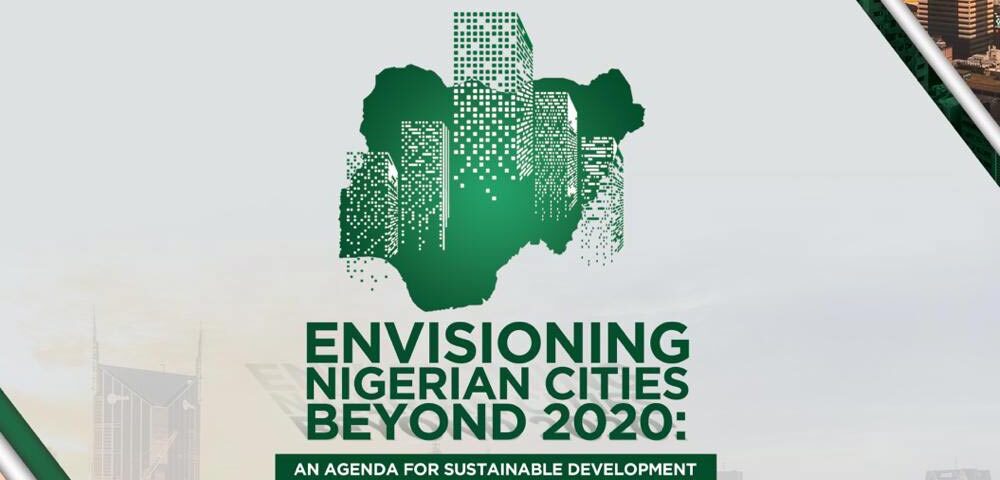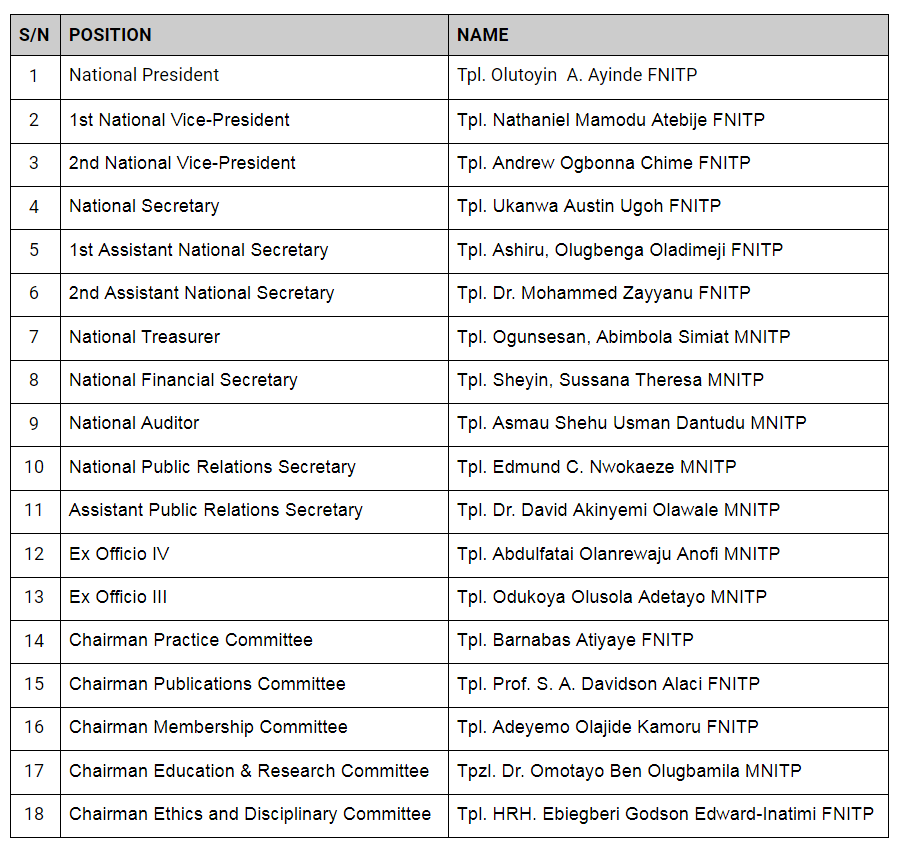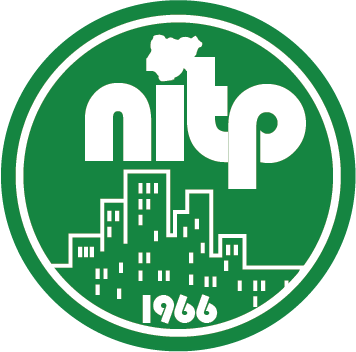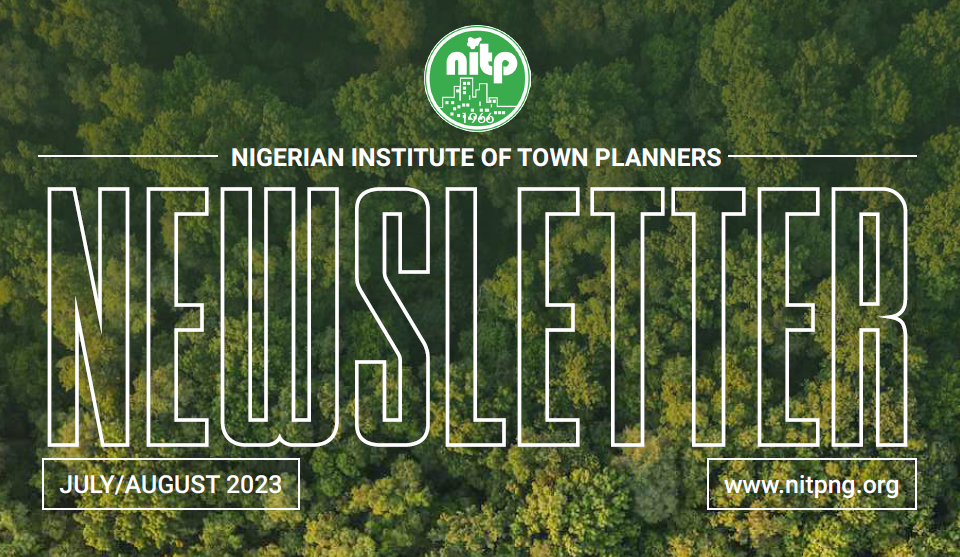Communiqué Issued at The 51st National Conference/Annual General Meeting of The Nigerian Institute of Town Planners (NITP) Held In Abuja, Federal Capital Territory (FCT) from Monday, 19th October to Thursday, 22nd October, 2020.

1.0 Preamble
The Members of the Nigerian Institute of Town Planners (NITP) converged on Abuja from Monday 19th October to Thursday 22nd October, 2020 for the 51st National Conference/Annual General Meeting. The meeting held at Chida International Hotel and Conference Centre, Abuja with the theme: “Envisioning Nigerian Cities Beyond 2020: An Agenda for Sustainable Development”.
The Conference was declared open by Tpl. Donatus Obialo FNITP, PPNITP and Chairman, College of Fellows. Goodwill messages were received from the President of Town Planners Registration Council of Nigeria (TOPREC), Tpl. Isyaku Mukhtar Kura FNITP; the President, Association of Town Planning Consultants of Nigeria (ATOPCON), Tpl. Niyi Odetoye, FNITP; President, Association of Professional Bodies of Nigeria (APBN), Surv. Akin Oyegbola; the UN-Habitat, represented by Mr Paul Okunlola; the President of the Nigerian Institution of Estate Surveyors and Valuers (NIESV); the President of the Real Estate Developers’ Association of Nigeria (REDAN) and the representative of the President, Nigerian Society of Engineers (NSE).
The Conference was attended by over 1000 participants, with 14 papers presented in four parallel sessions. The lead paper entitled: “Envisioning Nigerian Cities Beyond 2020: What must be done”, was presented by Prof. A.O. Yahaya of the Nigerian Defense Academy (NDA), Kaduna. The paper which was moderated by Tpl. Edna Tobi harped on key action points for improving the well-being of Nigerian cities.
2.0 Observations:
The Conference observed the following:
1. Land use affects distribution of wealth, individual and collective well-being; a critical factor in meeting the overarching goals of environmental sustainability, economic growth and social inclusion. The current trend and pattern of urban land use in Nigeria has implication on the quality of urban environment beyond 2020;
2. Critical issues of decaying infrastructure with far-reaching implications on the quality of Nigerian cities beyond 2020;
3. Urbanisation poses serious challenge to continued existence of cultural heritage. Physical planning laws and institutions do not give due consideration for the protection and integration of cultural heritage to physical plans and development in Nigerian cities;
4. There is no synergy between urban growth, infrastructure and investment in Nigerian cities and this leads to high property value which is not affordable to many city dwellers;
5. Most town and cities do not have physical development plans to guide their growth while the few ones prepared are either not implemented or implemented in breach. Values need to be placed on plans with commitment displayed through finance, human capital and/or other resources. The instances of zero budgetary allocation for plan preparation by some states for upward of five years are largely responsible for low ebb of plans to guide city development.
6. Beyond 2020, planning practice and consultancy services are expected to be more demanding as clients’ requirements and expectations for performance will tend towards higher scale. Physical development plans bring to fore, the skills and competence of town planners in space management and in creating functional communities.
7. Nigerian port cities are bedeviled with endemic traffic bottleneck with attendant psychological, social and economic trauma. These are largely occasioned by absence of sizeable truck terminals and transit parks as well as traffic snarl on connecting roads.
8. Home-based entrepreneurs and street traders are features of the informal-economy in cities, mostly carried out in open spaces and, in some cities, within buildings. Unfortunately, Nigerian cities do not support statutory integration of the informal sector that constitutes larger percentage of economic activities;
9. The structure of housing in most cities does not allow for the integration of small-scale enterprises for the section of the society whose income is below the median household income;
10. Creating smart and resilient cities will reduce slum emergence and the rate of insecurity while enhancing dividends of democracy at all levels of government;
11. Urban planning is very important to creating safe and liveable cities. It is also critical to health management, contact tracing, drugs/products distribution and personnel engagement. This was evident in the response to the COVID-19 pandemic;
12. Urban planning and management need to be inclusive to address issues of urban economics and governance especially in the face of the raging #EndSARS protests across the nation.
3.0 Recommendations
In view of the above observations, the Conference made the following recommendations:
1. Physical development plans should be reinforced as legislative documents and gazetted to strengthen implementation and as well criminalize attempts at deviation from, and abandonment of plans.
2. All stakeholders should be involved in complete project life cycle for sustainable urban infrastructure and enhancement of quality of lives and well being of residents.
3. Government is advised to review enabling planning laws to mandate Cultural Heritage Impact Assessment (CHIA) as a prelude to grant of development permit in certain places. Collaboration between the Town Planners Registration Council of Nigeria (TOPREC) and National Commission for Museums and Monuments could go a long way to strengthen the legal basis for protection of cultural assets through inclusive national and state policies, guidelines and regulations in line with UNESCO’s operational guidelines and the Washington Charter.
4. The adoption of the integrative framework of CHIA for proper contextualization of cultural heritage properties for adaptive reuse in site analysis report.
5. Review of the Nigerian Urban and Regional Law of 2004 (as amended) and domestication of same by all states of the federation, in line with contemporary requirements and peculiarities of individual state and implementation of same to address the disconnect subsisting between urban growth and investment on infrastructure in the Nigerian cities.
6. Plan preparation and implementation should be treated as distinct and separate deliverables for desired results.
7. There is the imperative need for integrated (inter modal) transport infrastructure development borne out of due consideration for human and freight transportation.
8. Informal sector should be integrated into land use planning with a view to addressing issues arising from proximity of market to crowd-pulling land uses such as major highways.
9. To promote sustainable urbanisation, government at all levels should pay urgent attention to rural and regional development planning and build necessary synergy between physical and economic planning.
10. The COVID-19 pandemic is a clarion call to hasten physical planning activities through intensified urban renewal, urban planning and economic revitalization.
11. Urban planning and management need to be inclusive to address issues of urban economics and governance especially in the face of the raging #EndSARS protests across the nation.
4.0 Conclusion
In conclusion, the Nigerian Institute of Town Planners (NITP) and the Conference appeal to government and various stakeholders to take necessary actions as articulated in the observations and recommendations to make Nigerian cities sustainable and liveable beyond 2020.
The Conference ended with the Annual General Meeting where the following officers were elected to serve in the National Executive Council of the Institute for the year 2020/2021.

The immediate past National President, Tpl. Lekwa Ezutah FNITP, and National Secretary, Tpl. Patrick Nyam FNITP, were constitutionally co-opted as Ex Officio I and Ex Officio II, respectively.
Signed
Tpl. Edmund Nwokaeze MNITP
National Public Relations Secretary


